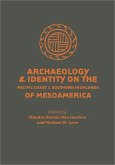Stretching from New England to northern Alabama, the Appalachian mountain chain forms not only a major geographical feature of the eastern United States but was also the setting for thousands of years of Native American cultural development. Like the more recent inhabitants of these mountains, the ancient highlanders developed vibrant and diverse traditions, and these are accessible now only through archaeological research. This book is the first effort to bring together research on the archaeology of this entire region. The contributors explore how Appalachian peoples throughout prehistory met the challenges of, and were shaped by, their mountainous setting. Juxtaposing work on the highland portions of the Northeast, the Southeast, and fringes of the Mid-Atlantic, the book explicitly overturns the traditional manner of dividing North American archaeology from east to west, thus inviting scholarly communication along a little-worn intellectual corridor that ironically corresponds to the Great Warrior Path, a well-worn Native American network. Some essays present current research on geographic features such as ridges, rises, and caves that either were used by prehistoric peoples or that affect archeological site formation. A second set of chapters provides synopses of cultural developments in distinctive Appalachian subregions. The latter are organized into general time periods with each section covering northern, southern, and intermediate subregions, a scheme that offers a sense of intraregional trends at different points in time. The individual essays in this volume are valuable in themselves as reports on state-of-the-art research. Taken together, they portray the breadth andvitality of archaeological study in Appalachia.
Hinweis: Dieser Artikel kann nur an eine deutsche Lieferadresse ausgeliefert werden.
Hinweis: Dieser Artikel kann nur an eine deutsche Lieferadresse ausgeliefert werden.








